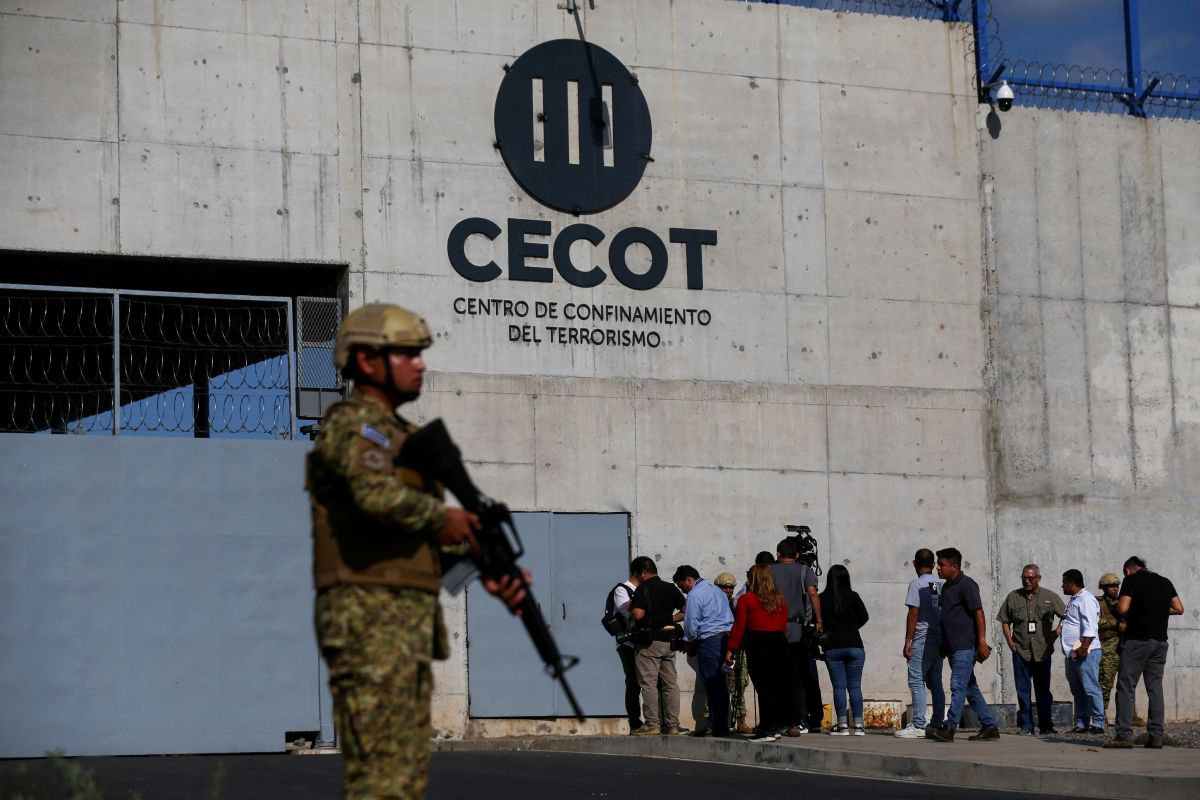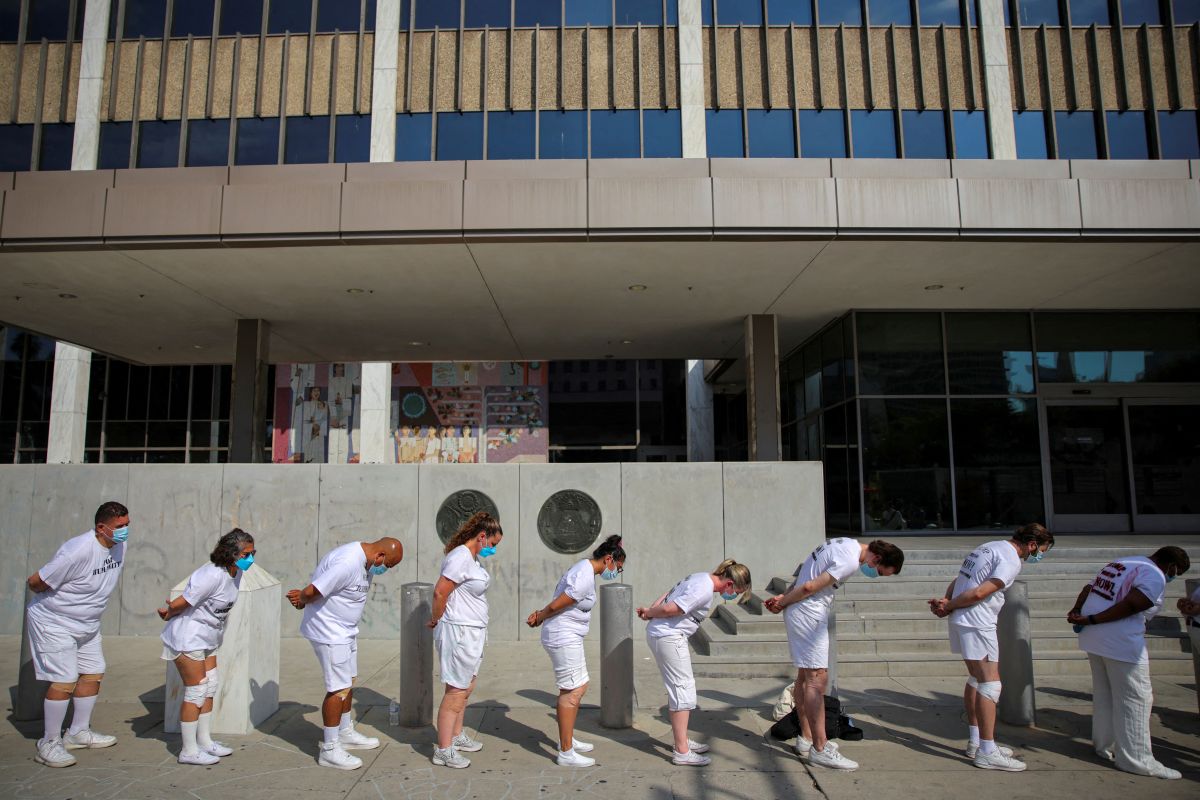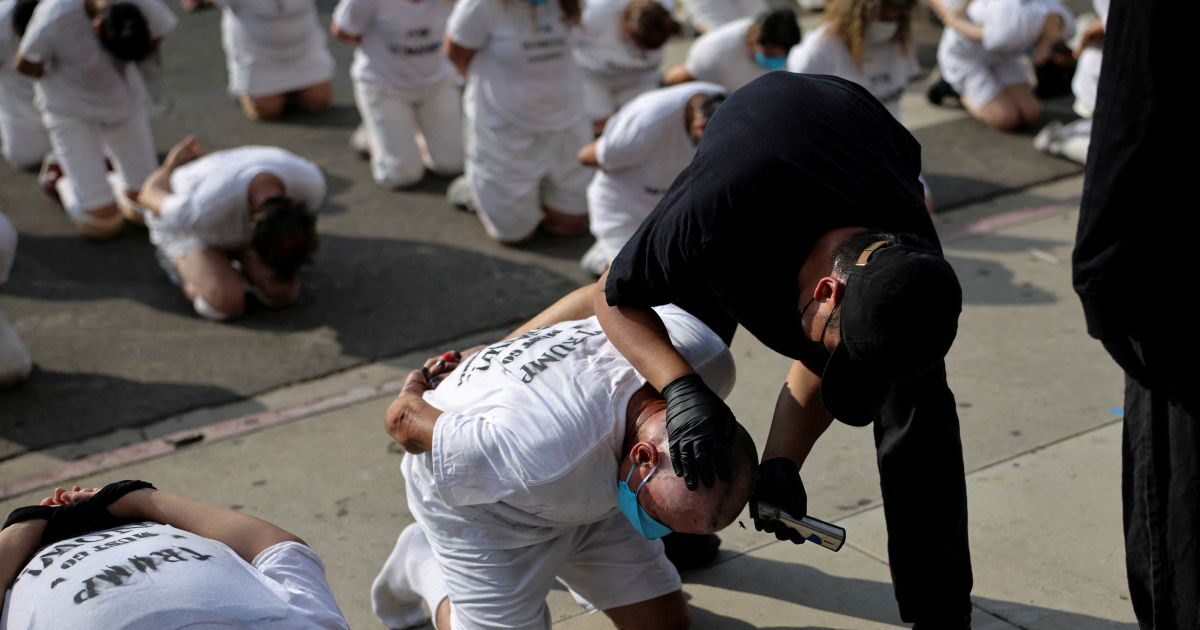“Welcome to Hell – here you will only leave in a black bag”: This was the reception that was waiting for the prisoners at the Terrorist Detention Center (CECOT) El Salvadorthe biggest prison in Latin America.
In the sunless Cecot’s cells in El Salvador, Prisoners describe a true nightmare. A man was beaten to fainting, others came out of isolation full of bruises, bypassing or drilling blood. One more returned to his cell, saying he had been victim of sexual abuse.
“Let’s bother him like a pine”the prisoners remember to shout the guards, while the sounds of the bumps echoed on the metal doors. They called it “La Isla” – the island – the most scary torture cell.
Through 16 Venezuelan Testimoniesdeported by the US with Donald Trump’s government and imprisoned in Cecot for 125 days, Washington Post It reveals the horror behind the walls of the overcrowded. Their narratives – the first so detailed that they have seen the light of publicity – speak of systematic beatings, denial of medical care and complete isolation from the outside world.
Among them, men with chronic diseases – diabetes, hypertension, kidney failure – who saw their lives endanger the indifference of the principles. Of the about 250 deported to Venezuela just this month, almost no one had managed to speak. About 14,000 prisoners remain in the CECOT today. Few have been released. Even fewer dare to publicly denounce what they lived.
A cell for 80 souls – ‘you will only leave in a black bag’
Each group cell in Cecot hosted about 80 inmates. The Venezuelanes were held in separate cells, where they were up to 20 people at the same time.
The lights stayed on 24 hours a day, men were sleeping in metal beds, no pillows or sheets. They had to be washed and needed in tanks and toilets without any privacy, and they rarely allowed them to get out of the cells.
Representatives of the El Salvador government refused to comment on the testimonies. President Bouquel’s spokesman in the US, Damian Merlo, described the detainees and their complaints as “non -existent”.
The US Department of Homeland Security claimed that they were members of the Tren de Aragua gang, although in court documents the US authorities themselves admitted that many of the departed had no criminal record.
White House spokesman, Abigil Jackson, thanked the Bouquel government for the removal of “worst criminals”, referring to every question to El Salvador’s principles.
However, complaints of torture, arbitrary deductions, disappearances and sexual violence, if proven as systematic and knowing the authorities, may constitute crimes against humanity, Lawyer Isabelle Robbie from Robert F. Kennedy Human Rights said.


Many of the detainees were only just people who had entered the United States legally, either by valid documents, by submitting asylum requests or interim protection.
THE Marco Hesu Basoulto Salinas He worked legally in the US so that he could cover his mother’s chemotherapy expenses, who was fighting with cancer.
THE Andri Hennadesa make -up in the profession, had been accepted by authorities by appointment via the CBP One platform, officially stating that he was afraid of persecution in Venezuela because he was gay.
THE Roger Molinafood distributor and amateur footballer, had passed all the necessary checks and had joined an approved Refugee Refugee Program of the State Department.
And yet, all of them ended up in El Salvador’s dungeons.
On March 15, tied with handcuffs, chains in the middle and ankles, They boarded three chartered planes. They did not reveal to them the destination. “We have prepared a surprise to you,” a US officer recalls him. When the plane landed, Basoulto looked at the scratch and saw the flag of El Salvador. Panic broke out, some refused to land.
A woman was hit by a guard. The voices flooded the cabin. The prisoners were beaten, dragged out, loaded on buses. Some were so bad that they bleed in the face.
On the road, hooded guards shouted: “Welcome to El Salvador! Welcome to Hell! “
“You will not eat chicken again in your life”
At Cecot, Basoulto said his guards shaved his head, took his clothes, his cellphone, $ 700 in cash and the golden pendant he was wearing for luck. Ernantes burst into tears when he saw his hair shave: “Why are you doing this to me? I’m a stylist for makeup, I’m gay, I’m not a gang member. “
The prisoners were stacked in a warehouse, between photographers and guards, and were forced to kneel. The director of the prison addressed the reason. Here, he told them, you will have no right -a lawyer, no sun, no chicken or meat ever again. ‘The only way to leave here’ added, “It’s in a black bag.”
The Cecot was built in 2023 by the Bouquet government to the culmination of repression against gangs. Was greeted as the America’s greatest prison, with a capacity of 20,000 and then 40,000 prisoners. Huge band, built in more than 280 acres, with power fences, 19 surveillance towers and metal grid roofs.
Venezuelans were held per 20 in concrete cells, With walls marked by sweat, dried blood and nail engravings, as a prisoner described. Each space included 80 metal beds, stacked on four floors. Toilet and water was used under strict surveillance and at defined hours.
There were no windows, no fans. They understood the time of day from the heat that made them sweat and the cold that frozen their beds at night. The sun was never seen -and sometimes they heard the rain.
‘Cecot was made for animals’ said 35 -year -old Julie Fernandes Sanchez. “It was designed to drive you crazy or lead you to suicide.”
Those who had medical problems were transferred to Cell 8according to Fernandes. There were diabetics, people with skin diseases or panic attacks.
Tito Martins, 26, had been diagnosed with kidney failure when he was detained in the US.
After constant beatings on Cecot, he could no longer get out of bed. He urged him, and depended on his detainees, to feed him. When he was finally transported to the doctor, he was told that his kidney was only 20% and that he would soon need dialysis.
The breach of the rules had consequences. One day, Ernantes went to wash without alerting others to watch out for guards. He was arrested and transferred to the isolation cell. There, four men with globe touched him, threatened him and forced him to have sex, according to his words.
After weeks of daily beatings, prisoners started a hunger strike. Four days without food and water. “They began to faint, stuck on the floor,” recalls Mervin Yamarte, 29 years old. “The guards were laughing.” When it did not perform, some used pieces of metal pipes to carve their skin and write their blood on the sheets: “We are not terrorists, we are immigrants.”
Two months after their arrival, the despair broke out. Prisoners rolled iron railings from the beds and broke the locks. They were flying soaps, juices and pieces of cement to the guards. They responded with plastic bullets, invaded the cells and forced the men to kneel with their hands behind their heads. “Our legs were pressing until we didn’t feel them anymore,” said Leon Rangel.


Then came the punishment: “The island.” Molina listened to howls for hours. The next day, the guards put the tied prisoners in a row and began to hit them one after another. One lost tooth. Another one had dislocation in the hand.
The conditions were improved only when external visitors came or when the government wanted photos. After a visit from the Red Cross, they distributed bible in the cells. Prior to the visit of US Secretary of State, Christie Noem, they were given better food and thin mattresses. When US politicians visited prison politicians, those detainees who had obvious injuries were transferred to the most secluded cells.
The International Department of the Red Cross visited prison twice. His representatives soon received oral messages from prisoners for their families – all controlled by prison staff.
